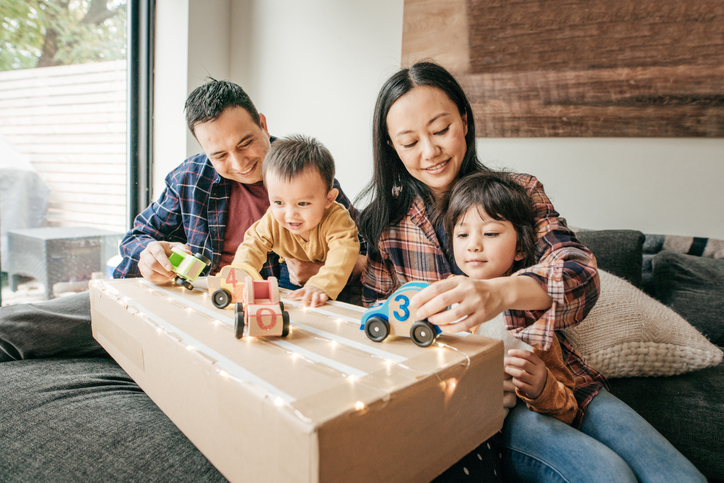If your child under 5 gets sick, have them tested for COVID-19. That’s the advice of urgent care pediatrician Dr. Jennifer Louie with Sutter’s Palo Alto Medical Foundation, who says it’s best to rule out the COVID-19 virus right away to keep your family and other loved ones safe.
Now that the COVID-19 vaccine is available for everyone 5 and up, the only ones who can’t receive that protection from the coronavirus are young children. In pre-pandemic times, Dr. Louie said it was normal for little kids to get sick as many as 10-12 times a year. She says this is an active age group that’s always exploring and touching things plus “their immune systems are still developing,” says Dr. Louie.
With COVID-19 still spreading in the community the situation is a bit more complicated for parents. “If you do suspect your child is sick,” she recently told the San Francisco Chronicle, “the symptoms of COVID-19, the flu and a cold can be similar and that can be confusing.”
Dr. Louie speaks with the San Francisco Chronicle here.
Dr. Louie advises that the best thing you can do if your child is sick is to get them tested for COVID-19. “You can do this at a testing center or by picking up an at-home testing kit,” she says.

Palo Alto Medical Foundation urgent care pediatrician Dr. Jennifer Louie pictured with her two children Louise and Thadeu.
While Dr. Louie acknowledges at-home tests aren’t perfect, the reassurance they bring is valuable. “If the test is positive, then you should get confirmation with a PCR test,” she says. The ease of the rapid test and their quick results make them more accessible for busy families and can allow for cases to be caught early, she adds.
Dr. Louie says the knowing part is empowering so that families can make decisions about pulling their child out of day care, testing other members of the family and making sure their child is getting the care needed to recover.
“I know parents have testing fatigue right now, but knowledge will help us stop the spread,” says Dr. Louie.
When possible this winter and holiday season, Dr. Louie recommends opting for outdoor activities with other vaccinated families. She says hand washing, masking and avoiding crowds also helps reduce the chances that little ones will catch the virus.
As for families heading to the airport, Dr. Louie encourages households to consider getting tested up to 72 hours in advance. This is important, she says, when travel plans involve visiting those who are more at risk, such as grandparents.
She says it’s also important to pay attention to the community positivity rate where you live and where you are going. If the rates of COVID-19 infections are high, you might want to think about postponing your trip or making alternative plans, she says.
“COVID-19 has shown to be pretty mild in this young age group, but that doesn’t mean kids aren’t at risk for health issues,” says Dr. Louie, who has a 5-year-old and a 2-year-old at home.
Dr. Louie shares that newborns and toddlers aren’t able to clearly say, “Hey mom or dad, I’m not feeling so hot” or “my head and chest hurt.” Instead, she suggests being on the lookout for signs like not drinking water or being really fatigued. She says if you suspect your child may be sick, it’s best to “watch and observe them.”
In short, her message to parents over the next few months is to exercise caution and common sense.
“There’s a lot that families with little ones can do right now,” says Dr. Louie. “They just need to be smart about it.”
Read more: ‘Flu Has Not Disappeared’: Why Flu Shots This Fall Are Important
Note: This content is not intended to be a substitute for professional medical advice, diagnosis or treatment. Always seek the advice of your physician or other qualified health provider with any questions you may have regarding a medical condition. Never disregard professional medical advice or delay in seeking it because of something you have read on this website.





